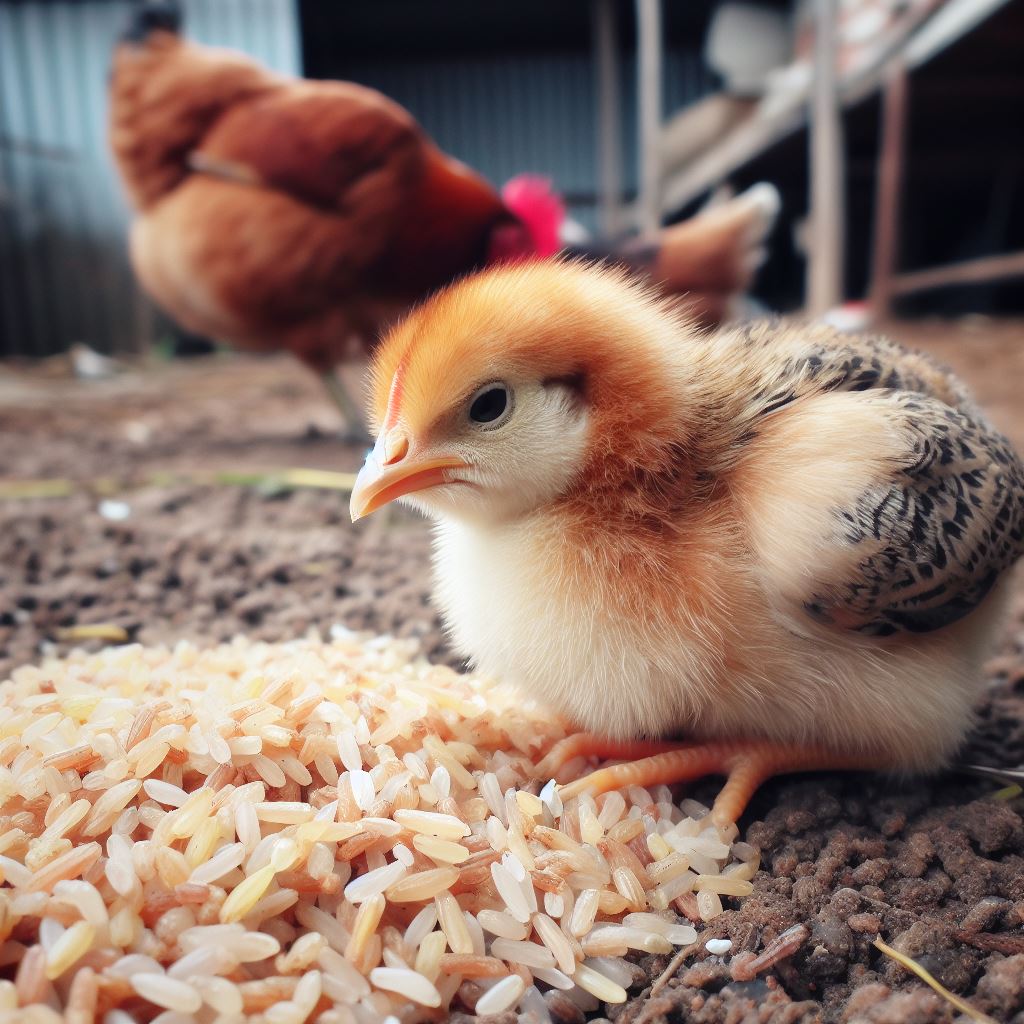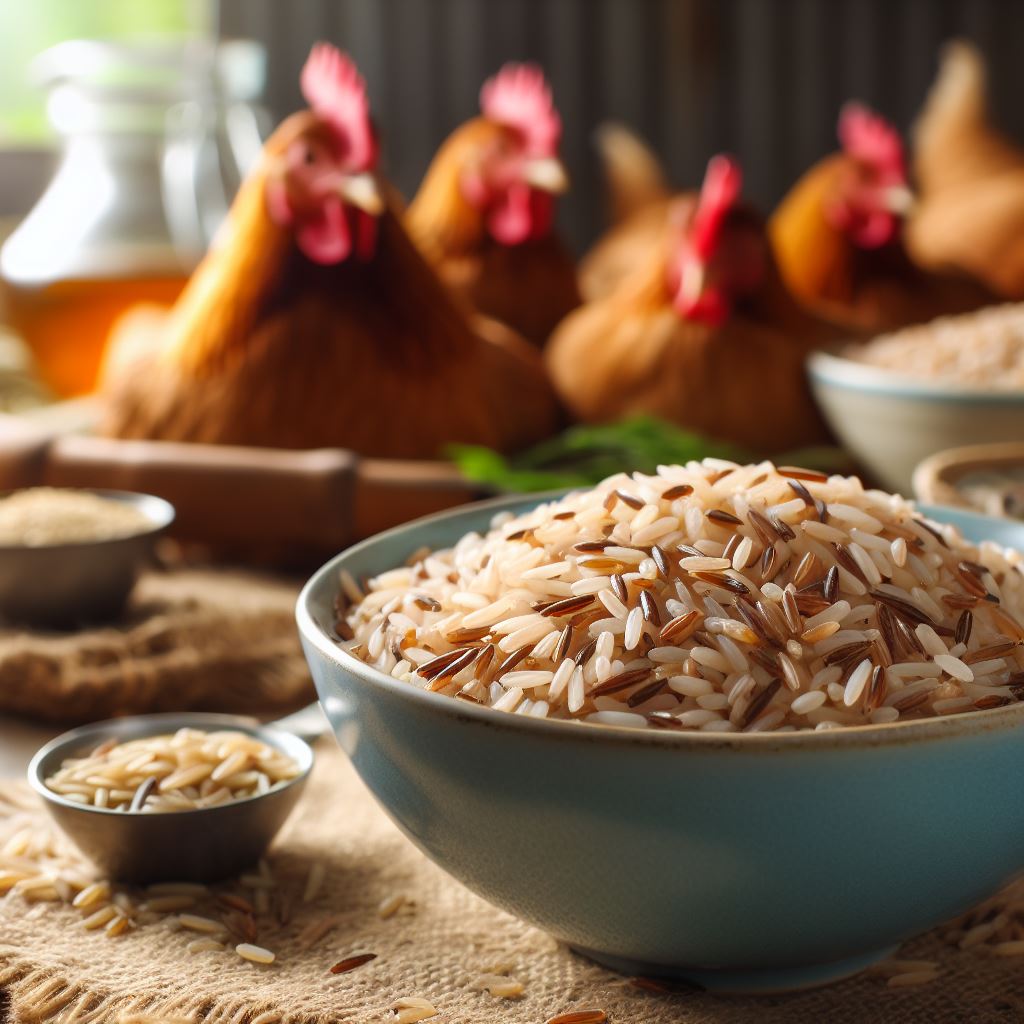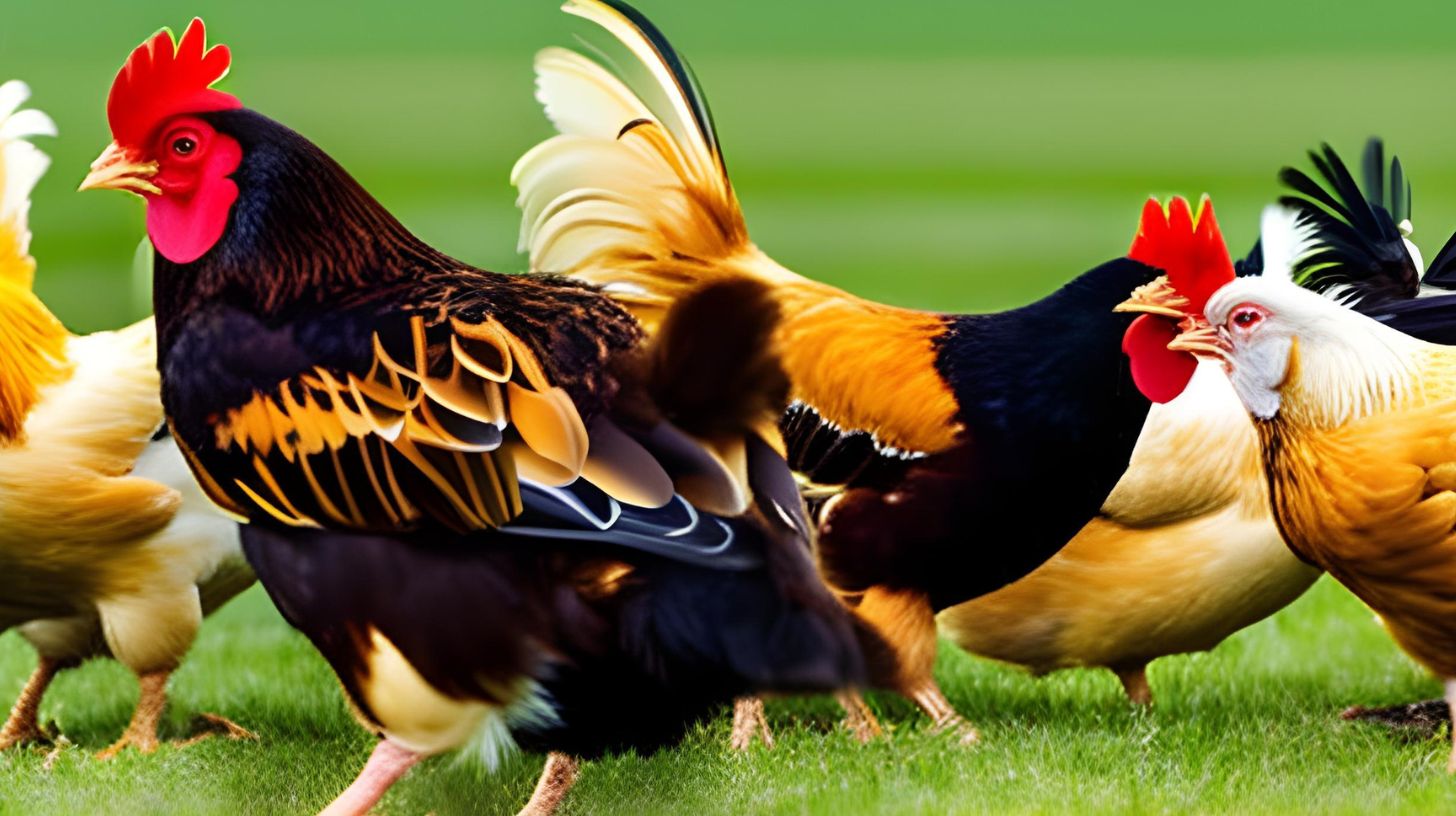Can Chickens Eat Raw Brown Rice?

Table of content:
- Chicken’s Diet
- The Nutritional Value of Brown Rice for Chickens
- Is It Safe for Chickens to Eat Raw Rice?
- Why Cooked Rice Is Ideal for Chickens
- Feeding Brown Rice in Moderation
- Brown Rice vs. White Rice for Chickens
- Other Whole Grains and Seeds for Chickens
- Potential Risks When Feeding Raw Rice
- Conclusion and Recommendations
Brown rice can make a healthy, natural treat for chickens in moderation. While chickens benefit more from cooked whole grains, raw brown rice offers useful nutrition and variety to their diet. Here’s what chicken owners need to know about feeding raw brown rice to their flock.
Chicken’s Diet
Chickens are omnivores that thrive on a balanced, varied diet. Their natural diet consists of:
- Insects and bugs
- Seeds and grains
- Fruits and veggies
- Grit to aid digestion
- Fresh water
This combination provides protein for growth, carbohydrates for energy, vitamins and minerals for immunity and development, and fiber for good digestion.
While chickens relish treats like rice, their main diet should consist of a complete feed or pellet to ensure they get adequate nutrition. Supplements like rice should be fed in moderation.
 The Nutritional Value of Brown Rice for Chickens
The Nutritional Value of Brown Rice for Chickens
Like most whole grains, brown rice offers beneficial nutrition for chickens, including:
- Complex carbohydrates for energy
- B vitamins like thiamine, niacin, and folate
- Minerals like manganese, selenium, and magnesium
- Antioxidants
- Fiber for digestion
Specifically, brown rice has more nutritional value than white rice because it still contains the whole grain with bran and germ intact.
| Nutrient | % Daily Value per Serving |
|---|---|
| Manganese | 88% |
| Selenium | 37% |
| Magnesium | 21% |
So while both can serve as treats, natural brown rice offers more benefits.
Is It Safe for Chickens to Eat Raw Rice?
Feeding raw rice to chickens is generally safe in small amounts. However, cooking rice makes it easier for chickens to digest and absorb the nutrients.
Some tips on feeding raw brown rice:
- Limit to 1-2 tablespoons per chicken daily. Too much can lead to digestive issues.
- Soak or sprout the rice to begin the germination process which makes it more digestible.
- Crush or break the rice into smaller pieces so it’s easier to eat.
- Mix with other ingredients like vegetables, seeds, or boiled eggs for a more balanced snack.
Why Cooked Rice Is Ideal for Chickens
While raw rice is fine occasionally, cooking makes it even better by:
- Softening the grain so it’s easier to digest
- Enhancing nutrient absorption
- Increasing palatability with a taste chickens love
- Deactivating anti-nutrients like phytic acid that can inhibit mineral absorption
Some healthy ways to prepare cooked rice for chickens include:
- Plain boiled brown rice
- Brown rice porridge for extra calories
- Fermented rice which increases digestibility through natural fermentation
- Rice mixed into cooked oatmeal or other grains
Overall, properly prepared whole grains like brown rice make excellent supplemental feed for chickens, providing energy, nutrition, and yummy variety.
Feeding Brown Rice in Moderation
While rice can be a healthy treat, moderation is key as too much can lead to:
- Excessive weight gain: Rice is high in carbs and calories so overfeeding can cause obesity.
- Nutritional deficiencies: Rice shouldn’t replace a complete feed that provides balanced nutrition.
- Digestive issues: Too much raw rice can irritate the digestive tract.
Here are some tips for keeping rice as a healthy part of a chicken’s diet:
- Limit rice treats to a few times per week. Offer other treats like veggies in between.
- Feed only 1-2 tablespoons per chicken per serving. Adjust amounts based on their size and activity level.
- Mix rice with other ingredients like eggs or greens to create a balanced snack.
- Substitute rice for high-calorie treats like corn, pasta or bread.
Brown Rice vs. White Rice for Chickens
As mentioned earlier, brown rice has more nutritional value than white rice since brown rice retains the whole grain. Specifically, brown rice has:
- 88% of the Daily Value for manganese per serving compared to 74% in white rice
- 21% Daily Value for magnesium versus 9% in white
- More antioxidants
- More B vitamins thiamine, niacin and folate
- More fiber
So nutritionally, brown rice is a better choice. However, since chickens don’t consume many servings, both can be fed as occasional treats.
Other Whole Grains and Seeds for Chickens
For variety, chickens benefit from different whole grains beyond just rice. Some other healthy options include:
- Oats
- Wheat berries
- Millet
- Barley
- Buckwheat
- Quinoa
- Chia seeds
- Flax seeds
These provide protein, essential fatty acids, and a range of vitamins and minerals. Mixing up the grains gives a balance of nutrients.
Potential Risks When Feeding Raw Rice
While rare, there are some risks to be aware of when feeding raw rice:
- Choking hazard from eating too large of pieces. Always break down rice.
- Impacted crop if chickens eat too much at once and it gets backed up. Limit portions.
- Nutritional issues if too much rice replaces balanced feed.
- Arsenic exposure as rice absorbs arsenic from soil. This is reduced by cooking.
To prevent problems, feed rice properly broken down, in moderation, and as part of a varied diet. Cook rice when possible to increase safety.
Conclusion and Recommendations
In conclusion, feeding chickens the occasional raw brown rice treat can provide nutritional variety. However, the following practices are recommended:
- Cook rice prior to feeding whenever possible.
- Limit rice treats to 1-2 times weekly, up to 1-2 tablespoons per chicken daily.
- Mix rice with vegetables, seeds, or other grains for balance.
- Substitute rice for high-calorie treats instead of complete feed.
- Feed a nutritionally balanced diet and fresh water daily.
While rice can be a safe, healthy supplemental feed, a varied diet and high-quality complete feed are vital to chickens’ overall nutrition and wellness. Following these tips allows chicken owners to safely provide rice as a delicious and beneficial snack.
Welcome. I’m Adreena Shanum, the proud owner of this website, and I am incredibly passionate about animals, especially poultry. I founded adreenapets.com as a labor of love, stemming from my desire to share my knowledge and experiences with poultry enthusiasts worldwide.




